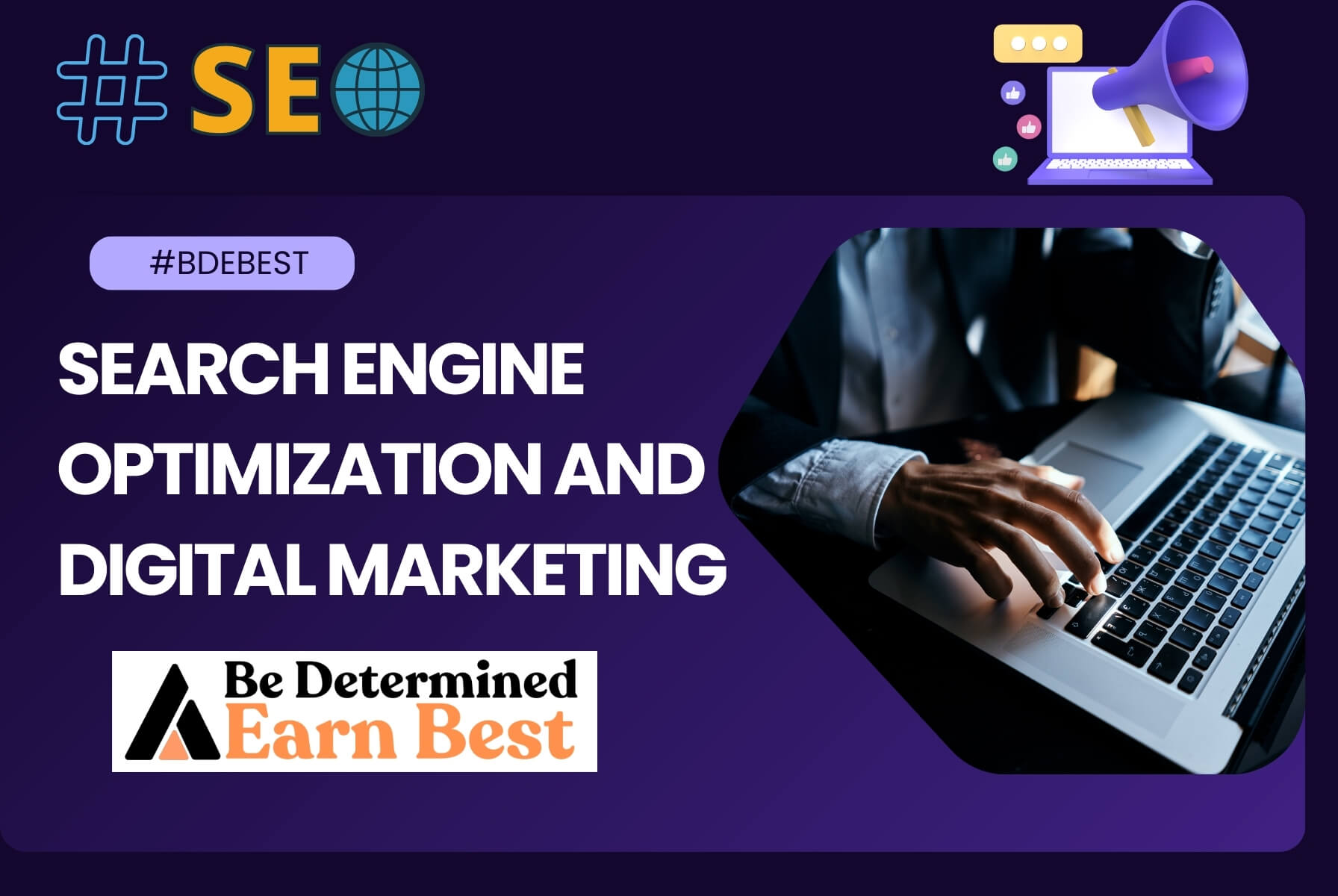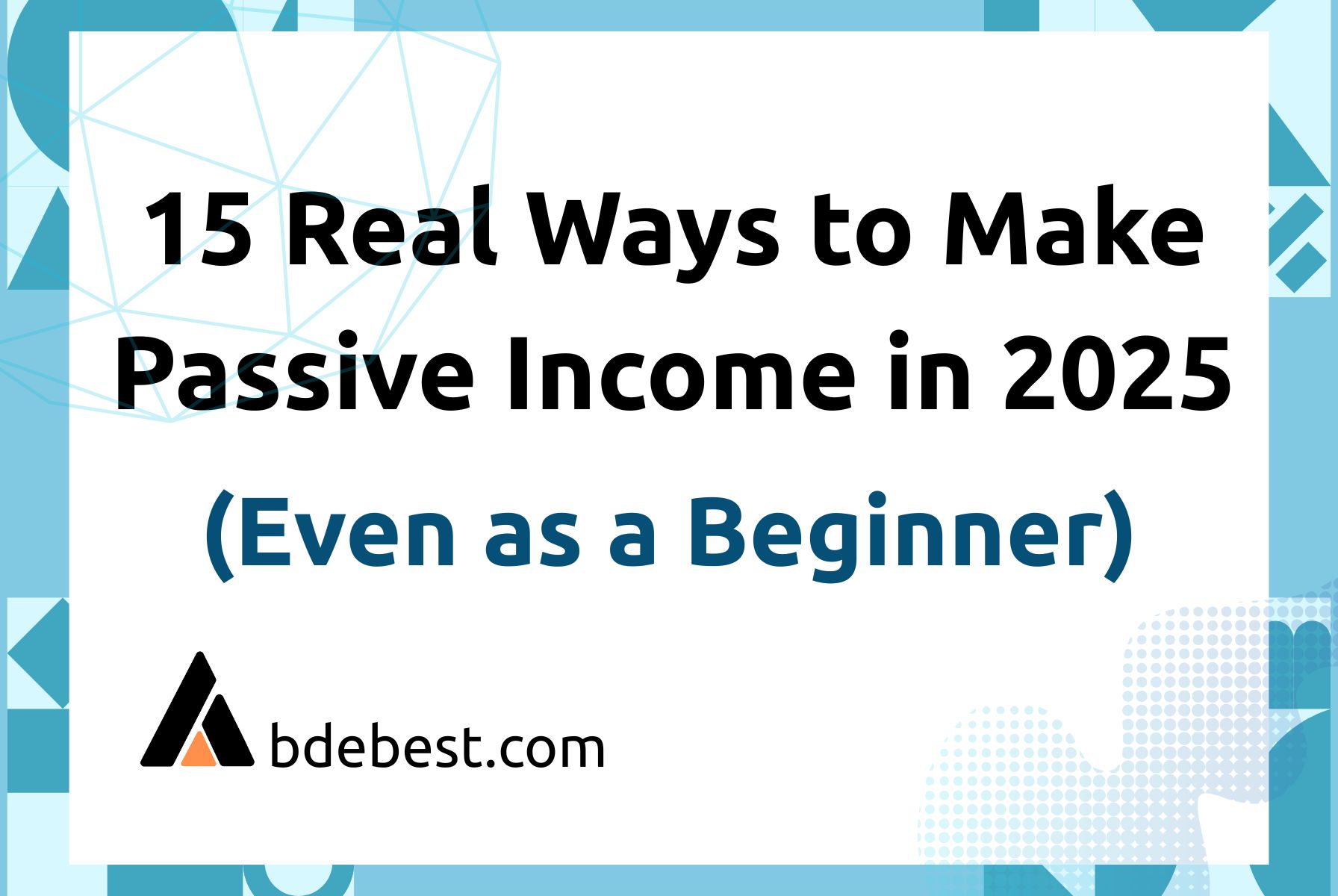The digital age has revolutionized how businesses operate, with the internet becoming a primary tool for reaching and engaging customers. To thrive in this environment, understanding search engine optimization and digital marketing is essential. This article explores the fundamentals of these intertwined fields, highlighting their importance and the strategies businesses can use to succeed.
What is Digital Marketing?
Digital marketing refers to the use of online platforms and technologies to promote products or services. From social media campaigns to email marketing, digital marketing encompasses all strategies designed to connect with audiences in the digital space.
- Role in the Business Ecosystem:
Digital marketing allows businesses to connect with customers worldwide, enhance brand visibility, and drive conversions effectively. Its scalability makes it suitable for both startups and multinational corporations.
Search Engine Optimization: The Core of Digital Marketing
Search Engine Optimization (SEO) serves as a critical cornerstone in digital marketing strategies. Its primary goal is to improve website rankings on search engine results pages (SERPs), increasing visibility and drawing in organic visitors.
The Synergy Between SEO and Digital Marketing
SEO and digital marketing work hand-in-hand to achieve common goals:
- SEO drives visibility, forming the foundation of effective content marketing.
- Digital marketing amplifies SEO efforts, ensuring that optimized content reaches broader audiences through various channels.
Why Understanding Both Fields is Crucial
In today’s competitive environment, integrating marketing tactics with SEO is essential for businesses to stand out. SEO improves the discoverability of digital marketing campaigns, while digital marketing enhances user engagement, supporting long-term growth.
The Basics of Search Engine Optimization (SEO)
What is SEO?
SEO is the practice of enhancing a website’s content, structure, and authority to rank higher on search engines like Google and Bing. Its ultimate goal is to attract qualified traffic and improve user experience.
Key Components of SEO
- On-Page SEO:
Focuses on optimizing individual web pages, including:- Keyword optimization.
- Meta tags (title and description).
- High-quality, relevant content.
- Off-Page SEO:
Involves building credibility through:- Backlinking strategies.
- Social signals and online reviews.
- Technical SEO:
Enhances a website’s backend to improve crawlability and performance:- Site speed optimization.
- Mobile responsiveness.
- Fixing broken links and improving XML sitemaps.
Why is SEO Vital for Digital Marketing?
- Improved Online Visibility:
SEO ensures your website ranks higher in SERPs, increasing the likelihood of being found by potential customers. - Drives Organic Traffic:
Organic traffic is a cost-effective way to attract users actively searching for your offerings. - Boosts Brand Credibility:
A higher ranking on search engines signals authority and trustworthiness.
Paid vs. Organic Traffic:
- Paid Traffic: Quick but expensive. Involves strategies like pay-per-click (PPC) advertising.
- Organic Traffic: Sustainable and cost-effective, driven by strong SEO practices.
SEO Trends Shaping Digital Marketing Today
Staying updated with the latest SEO trends is essential for maintaining a competitive edge. Here are some key trends reshaping SEO digital marketing strategies:
- User Intent and Search Behavior:
- Search engines now emphasize understanding user intent to provide the most relevant search results.
- Businesses must focus on creating content that aligns with their audience’s needs and questions.
- Voice Search Optimization:
- With the rise of voice-activated devices, voice search is becoming a dominant force in search queries.
- Focusing on conversational keywords and natural language optimization has become crucial for success.
- Mobile-First Indexing:
- Google prioritizes the mobile version of websites for both indexing and ranking purposes.
- Ensuring your website is mobile-friendly is non-negotiable.
- Local SEO Growth:
- Local search has gained prominence, with users increasingly searching for services “near me.”
- Businesses should optimize for local keywords and maintain up-to-date Google My Business profiles.
The Role of SEO in Digital Marketing
How SEO Complements Digital Marketing Strategies
SEO as the Foundation for Content Marketing
Content marketing flourishes when paired with visibility, and SEO ensures that your material reaches the right audience. By targeting relevant keywords, optimizing blog posts, and creating valuable resources, businesses can attract and retain users. For example:
- High-ranking articles not only generate traffic but also build credibility.
- Infographics and videos optimized for SEO drive engagement.
Integration of SEO with Email Marketing and Social Media Marketing
SEO isn’t confined to websites; it enhances email marketing and social media efforts too:
- Email Marketing: SEO insights help identify topics that resonate with audiences, leading to higher open and click-through rates.
- Social Media: Platforms like Twitter and LinkedIn can amplify the reach of SEO-optimized content, driving more traffic back to your website.
Building a Digital Marketing Funnel with SEO
The marketing funnel relies on strategic SEO efforts at every stage:
1. Awareness: Ranking on SERPs to Attract Users
SEO plays a critical role in building brand awareness by helping businesses rank for relevant searches. Achieving a spot on Google’s first page helps build credibility and trust with potential customers.
2. Engagement: Providing Valuable Content Optimized for SEO
Once users visit a site, engaging, SEO-driven content keeps them there. Blog posts, videos, and resources optimized for target keywords improve dwell time and reduce bounce rates.
3. Conversion: Using SEO-Optimized Landing Pages
Landing pages designed with SEO principles drive conversions by aligning with user intent and providing clear calls to action (CTAs).
Case Studies: Effective Use of SEO in Digital Marketing Campaigns
Example of a Successful Marketing and SEO Strategy
Consider a mid-sized e-commerce brand that integrated SEO and digital marketing to grow its organic traffic. By optimizing product pages, launching a blog with long-tail keywords, and running PPC campaigns, they increased website traffic by 60% in six months.
Metrics Showcasing ROI from SEO in Digital Marketing
Key performance indicators (KPIs) like:
- Increased organic traffic (tracked via Google Analytics).
- Higher domain authority (measured with tools like Moz).
- Improved conversion rates from SEO landing pages.
How Search Engine Optimization Agencies Can Help
What Are Search Engine Optimization Agencies?
Search engine optimization agencies specialize in developing strategies to improve a website’s search rankings. These firms provide tailored solutions to help businesses achieve their digital marketing goals.
Services Offered by Professional SEO Agencies

- Comprehensive Website Audits: Identify strengths, weaknesses, and opportunities.
- Keyword Research and Optimization: Focus on high-value, relevant keywords.
- Content Strategy and Creation: Develop and optimize engaging content.
- Technical SEO: Enhance site speed, mobile-friendliness, and crawlability.
- Backlink Building: Establish authority through ethical link-building practices.
Advantages of Partnering with SEO Companies for Digital Marketing
- Expertise: Agencies bring specialized knowledge that keeps you ahead of competitors.
- Scalability: They can adjust strategies to meet growing business needs.
- Efficiency: Save time and resources by outsourcing SEO tasks.
Selecting the Best SEO Agency for Your Business
Factors to Consider
- Expertise and Reputation: Look for agencies with proven results in search engine optimization and digital marketing.
- Case Studies and Client Reviews: Gauge their success through real-world examples.
- Clear Pricing Structure: Make sure you’re aware of all associated costs.
Red Flags to Avoid When Hiring SEO Companies
- Guarantees of “instant” results.
- Lack of communication or vague reporting practices.
- Use of black-hat SEO techniques, like keyword stuffing or link farms.
Top Tools Used by Search Engine Optimization Companies
1. SEMrush
A robust tool for:
- Competitor analysis.
- Keyword tracking.
- Identifying content opportunities.
2. Ahrefs
Essential for:
- Backlink analysis.
- Content gap identification.
- Domain authority tracking.
3. Google Analytics
A free tool offering insights into:
- Traffic sources.
- User behavior on your website.
- Conversion tracking.
Key SEO Techniques for Digital Marketing Success
Keyword Research and Optimization
The Importance of Targeting the Right Keywords for Your Audience
Keywords are the foundation of SEO digital marketing. They connect your content with users actively searching for products, services, or information related to your niche. Choosing the right keywords ensures that your efforts reach the audience most likely to convert.
Tools and Methods for Finding High-Value Keywords
- Google Keyword Planner: Identifies popular search terms and their competitiveness.
- SEMrush and Ahrefs: Analyze competitor keywords and uncover content gaps.
- Long-Tail Keywords: Focus on specific phrases to target niche audiences with intent-driven searches.
Pro Tip: Regularly update your keyword strategy to align with evolving user behavior and trends in search engine optimization in digital marketing.
Content Optimization for SEO and Digital Marketing
Writing SEO-Friendly Blogs, Product Descriptions, and Web Pages
High-quality, optimized content improves rankings and engages users. Keep these tips in mind:
- Write engaging introductions and include primary keywords naturally.
- Use short, scannable paragraphs with subheadings.
- Include multimedia content, such as images and videos, and optimize them using alt text for better accessibility and SEO performance.
Importance of Meta Tags, Alt Text, and Schema Markup
- Meta Tags: Craft compelling titles and descriptions to boost click-through rates.
- Alt Text: Ensure images are accessible and help search engines understand content context.
- Schema Markup: Use structured data to enhance search result snippets with reviews, prices, and more.
Link Building and Authority Development
Why Backlinks Are Critical for SEO Success
Backlinks are an essential indicator of trustworthiness, signaling to search engines that your content is reliable and authoritative. Websites with a robust backlink profile often outperform competitors in search rankings.
White-Hat Strategies for Effective Link-Building Campaigns
- Guest Posting: Share valuable content on trusted and authoritative websites.
- Creating Shareable Content: Publish infographics, case studies, or data-driven articles.
- Fostering Connections: Partner with key influencers and industry experts.
Avoid black-hat techniques like purchasing backlinks, as they can lead to penalties. Partnering with search engine optimization agencies can provide expert guidance for ethical link-building strategies.
Local SEO for Small Businesses
How Local SEO Helps Businesses Rank in Regional Searches
For small businesses, local SEO is a game-changer. It ensures your brand appears in local searches, helping attract customers nearby. Local SEO is especially crucial for brick-and-mortar stores or region-specific services.
Tools for Local SEO
- Google My Business: Claim and optimize your listing with accurate business details.
- Local Citations: Ensure your business information is consistent across directories like Yelp and Bing Places.
Pro Tip: Encourage satisfied customers to leave reviews, as they enhance credibility and improve rankings.
Challenges in Search Engine Optimization and Digital Marketing
Common SEO Challenges in Digital Marketing
Keeping Up with Algorithm Updates
Frequent updates to search engine algorithms, such as those by Google, can directly influence how websites are ranked. Staying informed and adapting to changes is vital for maintaining visibility.
Dealing with Competition in Saturated Niches
Highly competitive industries require innovative strategies to stand out. Long-tail keywords and unique content often yield better results in these scenarios.
Digital Marketing Challenges Related to SEO
Balancing Paid and Organic Strategies
While organic SEO is cost-effective, it takes time to deliver results. Businesses must strike a balance between SEO and paid campaigns to maximize ROI.
Understanding Multi-Channel Attribution
Customers interact with multiple touchpoints before converting. Tracking the role of SEO within broader marketing and SEO campaigns can be complex but is essential for effective strategy optimization.
How to Overcome SEO and Digital Marketing Obstacles
Actionable Tips and Resources for Troubleshooting Common Issues
- Stay Updated: Follow trusted sources like Moz, Search Engine Journal, or HubSpot for algorithm changes.
- Use Analytics: Tools like Google Analytics and Ahrefs provide insights into traffic, user behavior, and content performance.
- Partner with Experts: Collaborating with experienced search engine optimization companies can provide tailored solutions.
Emerging Trends in SEO and Digital Marketing
AI and Machine Learning in Search Engine Optimization
How AI Tools Are Transforming Keyword Research and Content Creation
Artificial intelligence is revolutionizing how marketers approach SEO digital marketing. Advanced tools like SEMrush and ChatGPT analyze search data, predict trends, and generate keyword-rich content tailored to user intent.
- Keyword Research: AI simplifies the process of identifying high-value keywords by analyzing search volumes, competition, and user behavior in real-time.
- Content Creation: Tools like Jasper AI and Grammarly ensure content is optimized, engaging, and relevant for target audiences.
The Role of Chatbots in Marketing and SEO
Chatbots powered by AI enhance user experience and indirectly impact SEO.
- Customer Engagement: Chatbots answer user queries instantly, reducing bounce rates.
- Data Collection: They provide insights into user preferences, helping refine content and keywords.
Video Content Optimization for SEO
Strategies to Optimize Videos for YouTube and Google Searches
With the growing popularity of video platforms, video optimization has become a critical component of seo and digital marketing strategies.
- Keyword Integration: Use primary and secondary keywords in video titles, descriptions, and tags.
- High-Quality Thumbnails: Eye-catching thumbnails improve click-through rates.
- Transcripts and Captions: Adding transcripts improves accessibility and boosts keyword relevance.
- Engagement Metrics: Focus on likes, shares, and watch time to signal quality to search engines.
Pro Tip: Use platforms like YouTube Studio to analyze performance and refine your video SEO strategy.
The Future of SEO and Digital Marketing
Predictions for the Next 5 Years
The future of search engine optimization and digital marketing will focus on:
- Personalization: AI-driven recommendations will create hyper-personalized content tailored to individual users.
- Privacy: With stricter regulations, marketers must balance data collection with user privacy.
- Automation: Tools that automate repetitive tasks, like email campaigns and reporting, will dominate the landscape.
Measuring the Success of SEO in Digital Marketing
Key Performance Indicators (KPIs) for SEO and Digital Marketing

To gauge the effectiveness of your strategies, monitor these essential KPIs:
- Organic Traffic: The volume of visitors arriving from unpaid search results.
- Bounce Rates: The percentage of users who leave your site without interacting.
- Conversion Rates: How many visitors take desired actions, like signing up or purchasing.
- Backlink Profile: The quality and quantity of sites linking to your content.
Tools for Measuring and Analyzing Performance
- Google Analytics: Tracks user behavior and conversions.
- Ahrefs and SEMrush: Provide in-depth keyword and backlink analysis.
- Heatmaps: Tools like Hotjar show how users interact with your website.
How to Continuously Improve Your SEO Strategy
Using Analytics to Identify Gaps and Opportunities
Analytics reveal areas for improvement by showing which pages underperform and which keywords drive the most traffic.
Importance of A/B Testing in SEO and Marketing Efforts
A/B testing compares two versions of a page or campaign to determine which performs better. Test elements like:
- Headlines and CTAs.
- Page layouts.
- Meta descriptions.
FAQ Section: Common Questions About Search Engine Optimization and Digital Marketing
- How does SEO differ from digital marketing?
SEO focuses on optimizing a website for search engines, while digital marketing encompasses all online promotional activities, including social media, PPC, and email marketing. - How does SEO improve digital marketing ROI?
By driving organic traffic, SEO reduces reliance on paid ads, lowering overall costs and increasing long-term ROI. - What are the best practices and foundational techniques for beginners to excel in SEO?
Start with keyword research, on-page optimization, and creating high-quality content. Build backlinks gradually and track performance regularly. - Why is SEO considered a long-term strategy?
SEO results take time to materialize due to competition and search engine algorithms, but they provide sustainable traffic once established. - What should I look for in search engine optimization companies?
Consider expertise, proven results, transparent pricing, and ethical practices. - Is it better to manage SEO efforts independently, or should you consider hiring an experienced agency?
DIY SEO is possible for small businesses, but larger companies may benefit from the expertise of search engine optimization agencies. - How often should I update my SEO strategy?
Reassess your strategy every 3-6 months to adapt to trends and algorithm updates. - What are the costs associated with SEO and digital marketing services?
Costs vary depending on the scope of services, ranging from $500/month for small businesses to $5,000+ for enterprise-level campaigns. - Is local SEO different from traditional SEO?
Yes, local SEO focuses on optimizing for region-specific searches, like “restaurants near me,” while traditional SEO targets broader audiences. - How can small businesses benefit from SEO in their marketing strategies?
Local SEO and content marketing can help small businesses compete with larger players by targeting niche markets and building community trust.
The integration of search engine optimization and digital marketing is vital for businesses seeking long-term success. Emerging trends like AI-driven strategies, video optimization, and privacy-focused practices are reshaping the landscape. By measuring performance and adapting strategies, businesses can achieve sustainable growth.
Now is the time to harness the power of professional search engine optimization agencies and cutting-edge tools to stay ahead in a competitive market. Ready to take the next step? Explore resources or contact an SEO expert today!







